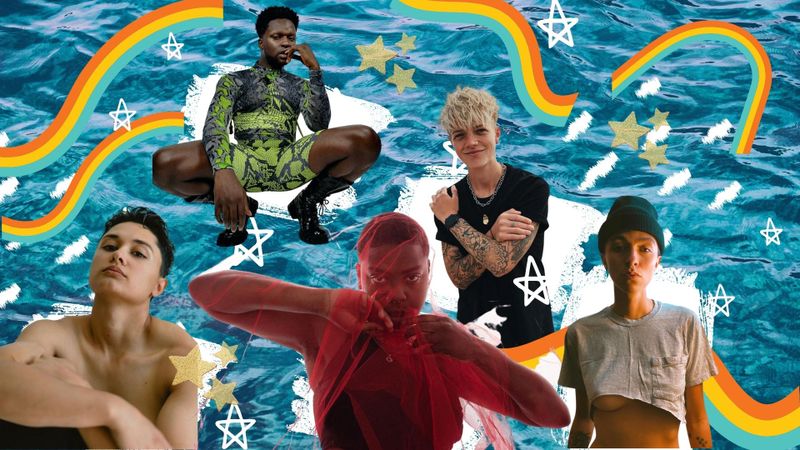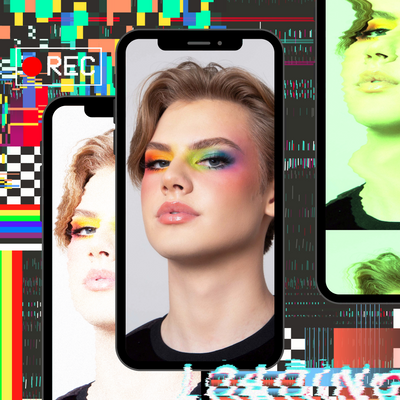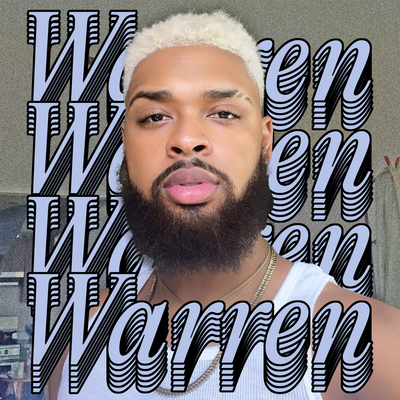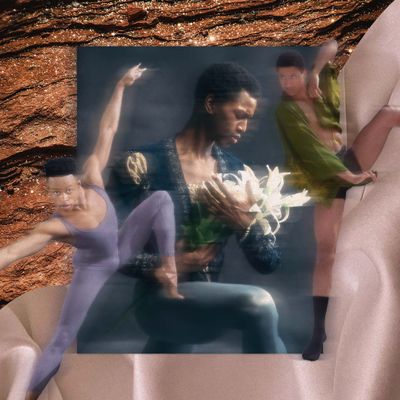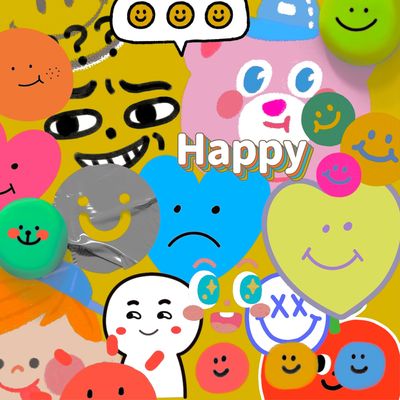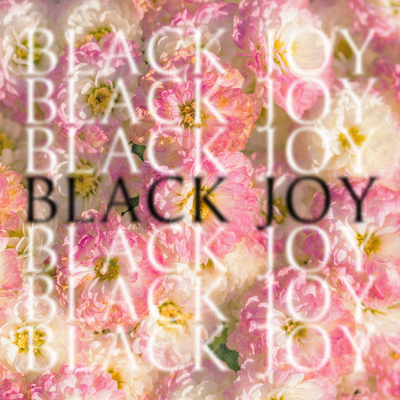Non-binary people are nothing new.
While the term is relatively new, people have existed as fluid or in-between genders for centuries. Joan of Arc defied gender rules by wearing pants and cutting their hair short as they led the medieval French army to victory when they were just 17. Hatshepsut, a Pharaoh that ruled Ancient Egypt in 1400 B.C.E., rejected feminity and had themselves portrayed in pictures as a man, with a male body and beard.
History shows us that non-binary individuals have always existed, and have largely been misunderstood. It’s proof that non-binary is not a “trend” catching on just because we finally have a generation that is accepting of people that don’t look, think, or love the way that they do. Non-binary people are becoming more prevalent because people are more willing to be more open about their identities without fear of rejection or severe consequences (at least for the most part in Western society). Celebrities like Sam Smith and Jonathan Van Ness are proof that non-binary people can be successful and happy by embracing their non-binary identities and encourage others to do the same.
Coming out is never easy, but for non-binary individuals, it can be even more challenging because non-binary can mean so many things. In general, non-binary means you don’t fit neatly into the categories of “man” or “woman.” For some people, that could mean you feel like both, while others may feel like neither. This could also change over time.
According to GLAAD, 12% of millennials identify as transgender or gender non-conforming. The more people talk about their experiences as non-binary individuals, the safer others will feel coming into their own truth.
On National Coming Out Day, we wanted to celebrate the non-binary experience. We talked to seven non-binary individuals about their coming out stories and what it means to them. We hope their words give you some understanding and perspective about what it means to identify as non-binary.
Tj Lucas-box from West Sussex, U.K.
I have come to the realization I feel like both genders but also like neither, all in one. I know to some people that won’t make sense, but that is the only way I can describe it. I think social constructs and what society has depicted as “normal” has held me back from reaching the road to self-discovery much sooner. I associate with the terms of non-binary, transgender, transmasculine, androgynous, agender, and genderfluid.
I decided to recently legally change my name to a more ambiguous name, Tj, allowing me to flow more fluidly without the instant association with the female gender and my now “dead name.” I feel almost as if I have just been reborn but on my terms, in a way that I have chosen, and gosh, does it feel good. I decided to come out to everyone at the same time. I guess some consider me to be an influencer on social media, and it was a big thing for me to come out to thousands of people at once. Looking at it now, I think I came out to myself at the same time, and that actually, coming out to everyone else was my way of coming out to myself.
Iesha Palmer, 25-years-old from Liverpool, U.K.
Coming out for me was a process more than an overnight thing. I accepted my truth of being queer around 20. It was purely because I couldn’t carry on lying to myself and those that I loved. My mother is a big part of my life and much like my best friend. I wanted to be able to share my truth with the one I cared for the most.
There is no ”right” way of coming into self and sharing that with other people. To others who want to come out as non-binary, I would say, take your time make sure you’re doing it on your terms. You will have people who don’t agree, criticize and try to belittle you but remember this is YOUR TRUTH.
As Tanya Compas once said, it’s not you coming out, it’s you allowing them in. When you look at it from that view, a certain pride starts to manifest. And for those who may never be able to share your truth, remember you don’t always have to be loud to be proud. You are still valid and valued.
Darkwah Kyei-Darkwah, 26-years-old from London, U.K.
I was actually typing my bio for the new publication I’m at the helm of and when I went to write my pronouns as he/him, I felt strangely uncomfortable. And when I say uncomfortable, I don’t mean a little squirm. Like, I was uncomfortable all over. I kept deleting and rewriting it and still felt the same.
I tried they/them and it just worked. I felt free. Free to be anyone and anyhow I wanted. So I stuck with it and realized this was me all along. I don’t adhere to any binaries, so why have one as my pronoun?
What really drove it home for me is that I’ve always been quite spiritual too and knowing believing in a higher power, I thought to myself, no matter what you believe in, you are a child of that power, right? So if I believe in a higher power that transcends gender binaries, then I too am a child of that higher power. I am a deity. Deities don’t have time to care about silly things like the gender binary, so nor do I!
These things are a process. A process of self-discovery through style, through candor with oneself and with others, and ultimately a process of deciding whether it’s something that needs a ‘coming out’ or if it’s just a lil update on the gram, you know?
Ty May, 27-years-old from Los Angeles, California
Coming out has never been a one-step thing for me. This question seems to lack a specific range of depth. I came out as a kid who likes girls at 6-years-old. I came out as a lesbian to friends at 13. I came out to my family at 15. I came out as non-binary at 24. I came out as pansexual at 26. I continuously come out every day as someone who holds they/them pronouns. My coming out story has never been a one-and-done. To this day, at this very moment, I’m coming out to a whole audience. I am just gaining familiarity and exposure through who have potentially never seen or known of me prior to this.
I embrace myself as a whole and it took so much time, heaviness, hard work, and tears to get to where I am at and I wouldn’t trade it for anything. It’s humbled me entirely.
Marie Marolle, 26-years-old from Vancouver, Canada
I’ve always felt “different” since I was a kid. I was very tomboyish, very feminine, and masculine at the same time. I never really understood how to feel comfortable being a girl like how the society defines a girl, but I didn’t feel either like a boy and fitting in with how the boys are defined in our society.
Of course, at that time, I only knew two genders, male and female, and I spent years being surrounded by binary people.
It took me some time to realize that changing pronouns could actually make me feel more like myself. I passed an audition this year for the UK series “Sex Education” and the role was for a non-binary character. I felt so happy first of all because I love this TV series but also because it was the first time I was auditioning for a non-binary character and I truly felt a connection, a joy inside speaking lines of someone who feels like me. Since that audition, I decided to use the pronouns they/them.
Jessica Gabani, 22-years-old from Milan, Italy
At the age of 14, I realized that I was not happy with how my life was going, and I felt like I was living in a cage. I started listening to myself and following my heart and my head. From that day on, I found happiness and I understood who I really was.
I was lucky to have an understanding and unprejudiced family. Thanks to them, I have learned to be more confident in myself and not give a damn about others. I would change absolutely nothing about my coming out experience. I would tell others going through the same thing to be calm and to keep doing what they are doing because if it makes them happy that is the right path. Don’t listen to the wickedness of the people, don’t break down, and ALWAYS keep fighting.
Gio Simoniti, 22-years-old from Hamburg, Germany
I just came out as non-binary half a year ago. I always knew from a young age that I am not the typical girl and even considered being completely trans, but I was way too scared and insecure about my feelings. I just tried to fit in and hoped that one day it would change.
Because of TikTok, I realized that the term non-binary existed and I looked more into it. After two weeks I felt secure to say that it fits me, and I told most of my friends and family a week after that.
My grandma was the cutest. She immediately started reading articles about being non-binary, watched interviews, and even only uses a genderneutral name for me. She’s 78-years-old and was raised conservative Catholic, but she’s been amazing.
I wish I would have realized I was non-binary before, as it definitely was frustrating and depressing not knowing why I don’t feel like the “typical girl.” I just wish I would have known at the age of 14 that being non-binary exists and it’s normal to feel this way.

